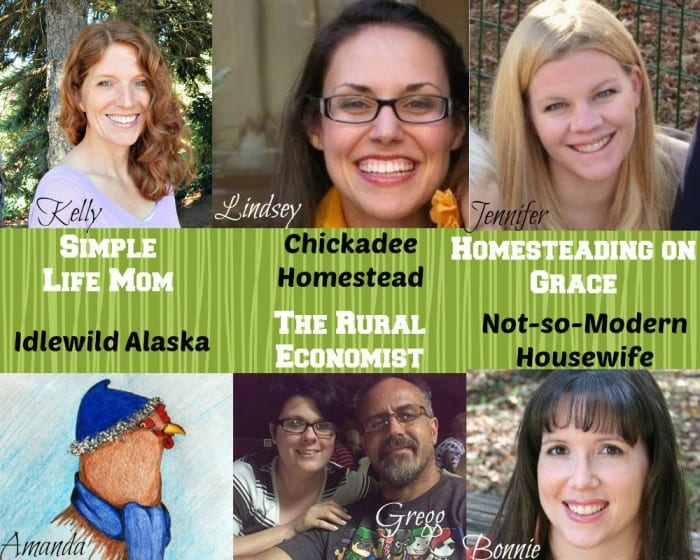I have a confession to make. I am one of those guys who believe there is nothing I can't do. So far I have managed to power through a lot of situations that seemed insurmountable. I have said so many times that sometimes you have to Conan the Barbarian through a problem. If I couldn't Conan through, I would then stop and think my way through the issue. Raw power and determination were always the first choice.
The History
I know there comes a time for everyone when they have to face having to slow down at least some. I am having to face that a lot sooner than I had hoped. Several years ago I had a motorcycle accident and broke my ankle in five places. The accident happened on a Thursday. When I woke up Friday morning the doctor came in to check on me. My first question was, "When am I getting out of the hospital?". He asked me why. I told him that college started Monday and that I would be in class. I was in class that Monday, but a few weeks later I had to go back in for more surgery. Some of my skin had died and the doctor feared infection.
During this my third surgery, the doctor had to cut out all of the dead flesh, which of course left a hole in my ankle. They then cut a piece of meat off of the top of my foot, rolled it up and stuck it in the hole. Then they took a skin graft from my thigh and covered where they took the meat. As I recall, I was in the hospital for 10 days.
At this point I would be remiss if I didn't give a shout out to my instructors. They were great. A laptop was brought to me and my instructors took turns bringing me my assignments. Through all of this mess, I didn't fall behind on my school work, thanks to my teachers going the extra mile for me. I spent a month in a wheelchair, another month on crutches, then an additional month in a walking boot.
At every step of the way I have refused to accept limitations. My doctor told me I would never run again. For six years I proved him wrong. He said my mobility would decrease. Nope. He expected me to gain a lot of weight. Nope. Basically, he thought I would give up. I am sure that is something he has seen far too often. He has taken to calling me Wild Man and has told me numerous times how impressed and surprised he has been by my determination and longevity.
My doctor has told me that my ankle would continue to degenerate. This one he is spot on. I can no longer run, but for the most part I can do anything else. My average pain level increases each year. Winter, heavy activity, and changes in barometric pressure cause increased pain and swelling.
Due to a reduction of flexibility in that ankle, one of my calf muscles is a good bit smaller than the other. My wife says that no one notices but me.
Steep inclines, ladders, and climbing have become much more difficult. I have also experienced some nerve damage in that foot so I have to be extra careful.
The Update
After a very difficult week, the pain in that foot went from bearable to interfering with my everyday life. I finally went to the doctor again. Now, I feel I must tell you I am probably not the best patient. I don't like restrictions, I don't like being told I can't do something. I also am not a fan of most of the prescription pain killers. I am sure my doctor has been frustrated with me more than a few times. But he has learned the way I am over the years.
This time was bad enough that we agreed on a cortisone shot in my ankle. This was the first one of these I have ever had. People have told me horror stories about these injections. Some have even said the pain of the shot was worse than what they were trying to fix. This was not the case for me. The most uncomfortable part was when they were pushing the medicine into the joint. I could feel the joint being forced apart. My ankle felt better instantly, but the doctor told me that was probably the local anesthetic and that it would wear off later that day and the cortisone would take up to two days to completely take effect. So far the injection has helped some, but it is in no way a miracle help.
The Prognosis
At every step of the way my doctor has tried to be honest with me, even when I was determined to defy logic. He has told me since the very beginning that I would eventually have to have a permanent fix for my ankle. About four years ago, during another difficult period with my ankle, my doctor referred me to a specialist to learn if ankle replacement might be an option for me. I was actually a little excited about the possibility of getting full range of motion back.
The specialist looked at my x rays and looked at me and said that I was too young and too active for all current technology. He said that I would wear an ankle replacement out in as little as six years and I would have to have it done again. I will have to tell you this was more than a little disheartening.
With this information in hand I had come to the realization that I only have two options for me in the future when it comes to my ankle. An ankle fusion or an amputation. Yup, that is all I have left.
The Options
Amputation
Now, I know there are a lot of people who are astounded that I would even consider this option and there are even more that might question whether or not a doctor would perform this procedure. After all, right after my wreck the doctors did everything they could to save this foot. When I was in the emergency room my foot was at a 90 degree angle of where it should have been. My bones were sticking out of my skin. The circulation to my foot was jeopardized. The doctor (same guy) told me if they set the foot right then, there was a good chance of infection, if they waited and made sure that everything was cleaned well with the compound fracture I might lose my foot. I told them to save the foot.
I have talked to my doctor about amputation. He told me that he understood my thoughts about doing so and that he would refer me to someone who would do that if that was my choice, but that he wanted me to have all of the information first before making that decision.
I find it interesting that prosthetics technology has out paced joint replacement, interesting but not surprising. Prosthetics technology always advances in conjunction with a military conflict. I know that sounds bad and please believe me when I say I support our men and women in uniform. But military conflicts cause people to be injured, injured people are opportunities for organizations to push the edge and create a name for themselves. These companies tend to do a really good job for soldiers and young athletes, but not too well for everyone else or at least this is the opinion of my doctor.
Benefits of amputation are no more ankle pain and once I learn how to use a properly fitted prosthetic, there will be little to no mobility loss. I have had medical professionals encourage me to take this route.
Drawbacks of amputation are the time it takes to learn to use a new limb, working with a company to make sure the prosthetic is properly fitted, and phantom pain.
Phantom pain is pain that feels like it originates from a part of the body that is no longer there. At one time doctors believed that these pains were psychological, but have since discovered that these pains are a result of the brain and spinal cord trying to communicate with nerves that are no longer there. These pains can be quite intense.
Ankle Fusion
The technical term for this is ankle arthrodesis. The goal of this procedure to to stop joint pain caused by arthritis. There are a couple different ways this can be done. One is a full ankle fusion. This requires the installing of screws and a metal plate. This stops all movement from the ankle down with the exception of the toes.
 |
| Full ankle fusion |
The others are all variations of a partial ankle fusion. The extent of the damage determines which procedure is required. This can be done with screws alone or may also require a metal plate. The one my doctor is leaning toward would require three screws. This stops all movement in the affected joint and allows for the body to build bone around the screws. This basically allows the bone to grow together.
 |
| Partial Fusion and the one my doctor is wanting to do on me. |
The fusion my doctor wants to perform on me is very similar to the one above. I would still have flexion in my lower ankle and in my foot. Basically the part of the ankle that does some of the side to side would still be able to function, but very little of the up and down would be preserved. The partial is preferable to the full fusion just due to mobility. I will still have to learn how to walk with the new limitations, but it will not be as dramatic as an amputation or a full fusion.
How does this stop the pain?
In my situation, my ankle joint was so badly injured that the cartilage that used to cushion the jar of each step has gone bye bye. Currently every time I take a step, I have bone scraping on bone. A fusion stops this scraping, plain and simple.
Current Maintenance
I have already told you that I have refuse narcotic painkillers on a regular basis. I have seen too many people get hooked on that stuff and they cannot come to terms with their addiction because after all it was "prescribed by their doctor". To be honest I am not a fan of pills of any type. For the most part my maintenance is simply a brace or a work boot. These restrict movement of the joint and thus slow down the deterioration. Though interestingly enough the brace seems to increase pain and the doctor doesn't understand why.
Most of the time as far as pain management goes, I use either herbal remedies or over the counter stuff. Chondroitin and Glucosamine have been proven to reduce arthritis pain even though they aren't sure how or why. Its a pill and I have had to force myself to take them in the past. The brace I use is an ASO stabilizing brace in a size medium. Willow tea can help a bunch as well. Willow tea has a compound in it that our bodies turn into the original aspirin. Be aware willow tea can cause stomach
upset so take with a little food. If things turn bad quickly I am not above taking some aspirin or ibuprofen, I do not like acetaminophen
.
The Timeline
When I first had the wreck, my doctor told me we would probably have to look at a more permanent
solution, either fusion or ankle replacement, by the time I turned 55. This was before he found out how active and stubborn I am. By last year ankle replacement was no longer an option and the time frame was reduced to hopefully when I turned 50. This year the timeline has been reduced even further to 47 or 48. So I guess you could say my unwillingness to quit has sped up the process of having to do something different, but to that I would ask, would you really be willing to sacrifice enjoying your life in order to prolong inactivity? Not me. I am going to go until I cannot go anymore then go another mile or two.
I have known people my whole life that talked about living with pain everyday. I never could comprehend what they were talking about. Even though I do have physical pain everyday now I still cannot understand the hopelessness that many of these people portrayed everyday. I do not think about the pain unless it gets to the point that I cannot ignore it. Even when that occurs I either power through or find a way around. It is challenging to have physical limitations that your mind are unwilling to accept, but I would rather have to deal with that problem than to have my mind accept limitations that are really beyond what they should be in an attempt to avoid pain.
Please do not think I am diminishing anyone's struggles, I know there are people who hurt much more than I do and still work their way through, I also know that there are those who do not hurt near as bad as I do that have given up. A strength of spirit can overcome a weakness of body.
Bringing Rural Back
Subscribe to our mailing list
Check out The Rural Economist on Pinterest
Affiliate Link Disclosure: This post may contain affiliate links. I may receive compensation for links, endorsements, testimonials, or recommendations for any products mentioned on this blog. If you see something you are interested in, check them out. Thanks for your consideration.
 Kelly - Simple Life Mom (Facebook/Pinterest/Twitter/G+)
Lindsey - Chickadee Homestead (Facebook/Pinterest/Instagram)
Jennifer - Homesteading on Grace (Facebook/Pinterest/G+)
Amanda - Idlewild Alaska (Facebook/Pinterest)
Gregg - The Rural Economist (Facebook/Pinterest/Twitter/G+/Instagram)
Bonnie - The Not So Modern Housewife (Facebook/Pinterest/Twitter/G+)
Kelly - Simple Life Mom (Facebook/Pinterest/Twitter/G+)
Lindsey - Chickadee Homestead (Facebook/Pinterest/Instagram)
Jennifer - Homesteading on Grace (Facebook/Pinterest/G+)
Amanda - Idlewild Alaska (Facebook/Pinterest)
Gregg - The Rural Economist (Facebook/Pinterest/Twitter/G+/Instagram)
Bonnie - The Not So Modern Housewife (Facebook/Pinterest/Twitter/G+)




















